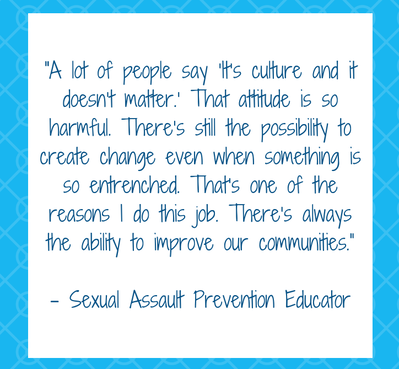|
Nondiscrimination PolicySexual Assault Support Services of Midcoast Maine does not discriminate on the basis of race, creed, color, religion, sex/gender, national origin, age, disability, sexual orientation and all other characteristics and status in any group protected by city, state and federal laws. This policy applies to all terms and conditions of employment and to the provision of any services offered or provided by the agency.
Office Drop-ins Please call the State-wide Sexual Assault Helpline to set up a time with an advocate to meet with you in person at one of our offices. Our advocates are not available to the public in SASSMM/CAC office spaces 24/7. We require an advanced notice to ensure that an advocate can be available and present to meet with you to help address your needs. |
Statewide Sexual Assault Helpline: 1-800-871-7741Administrative Office:
|
